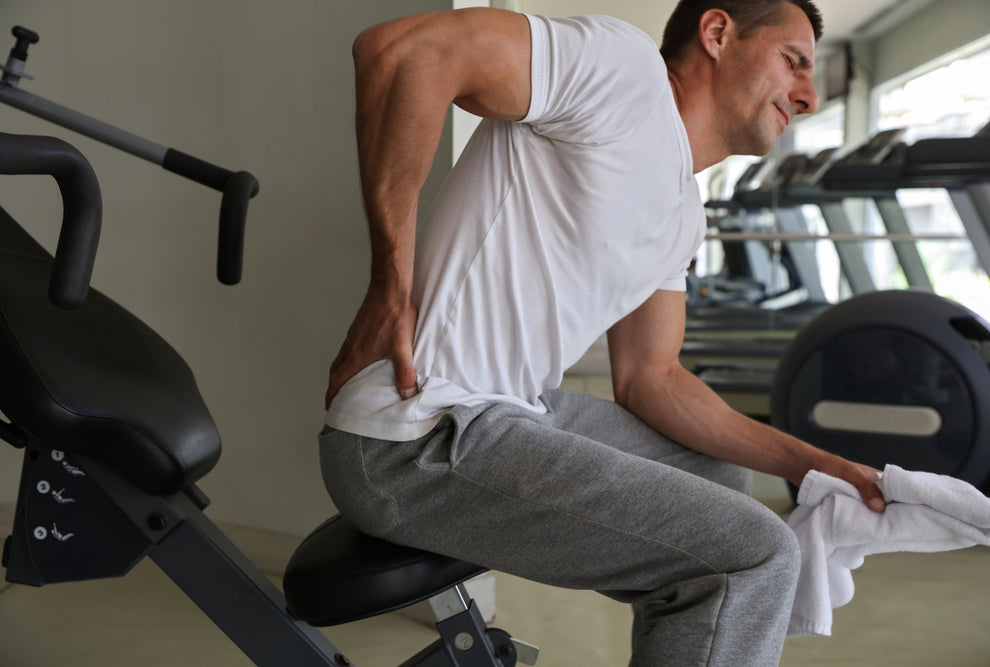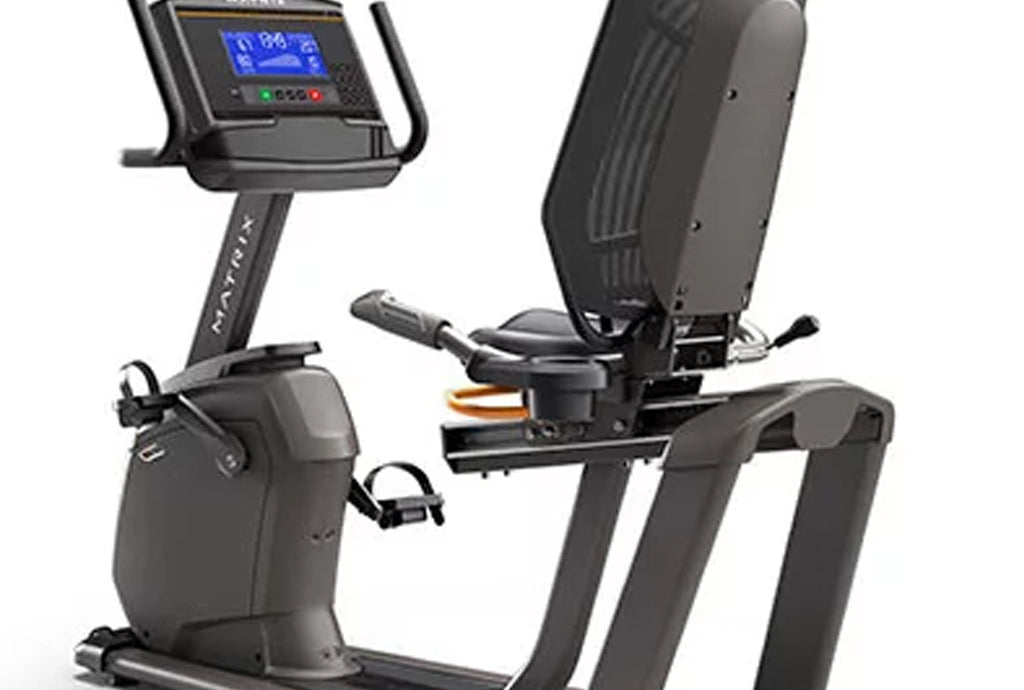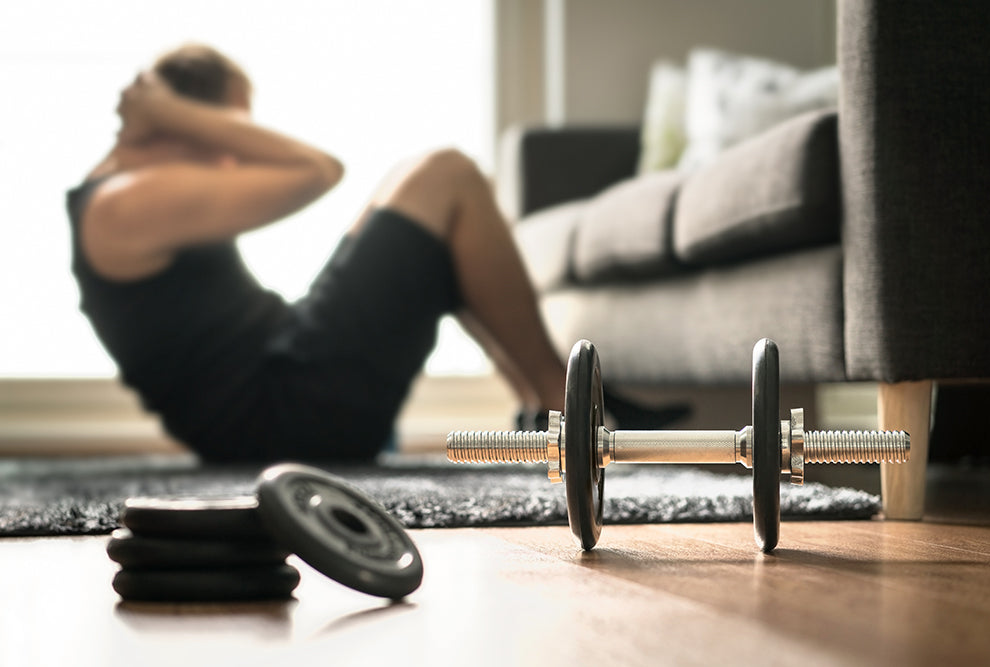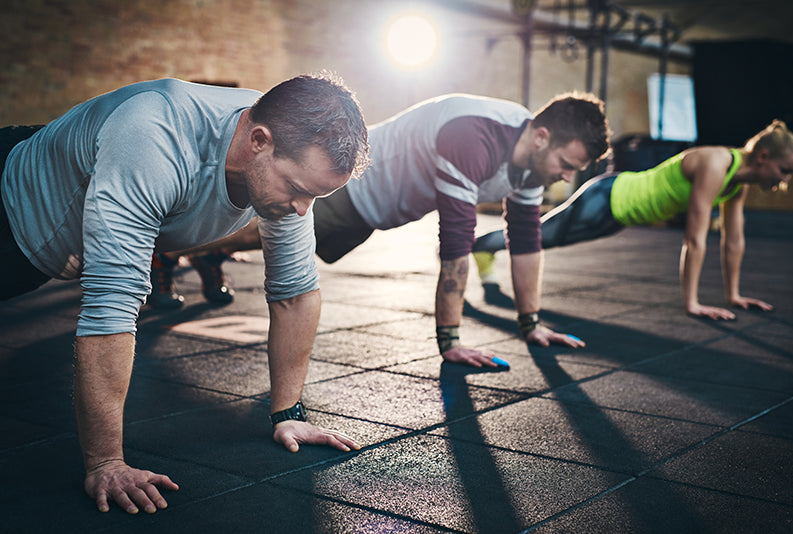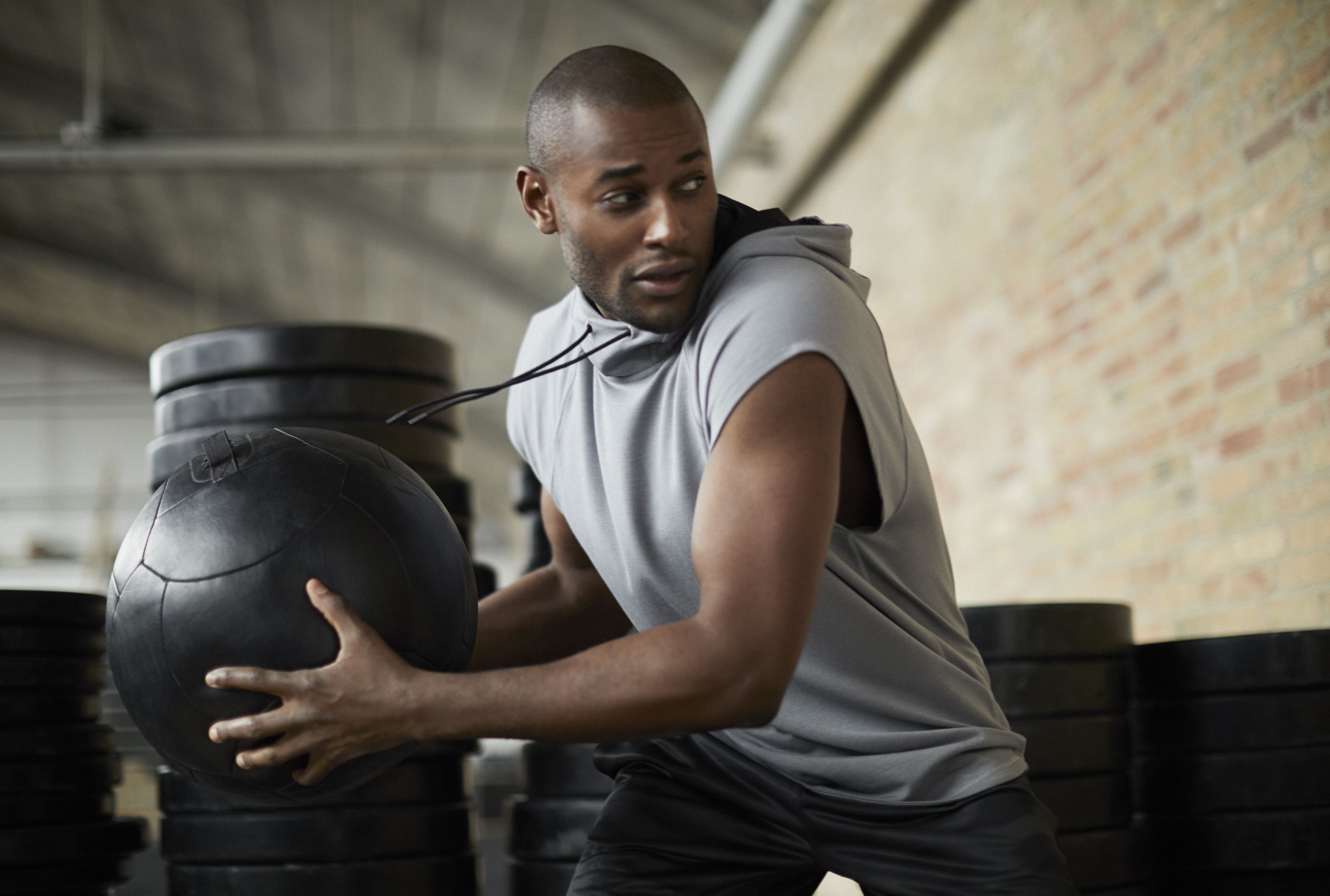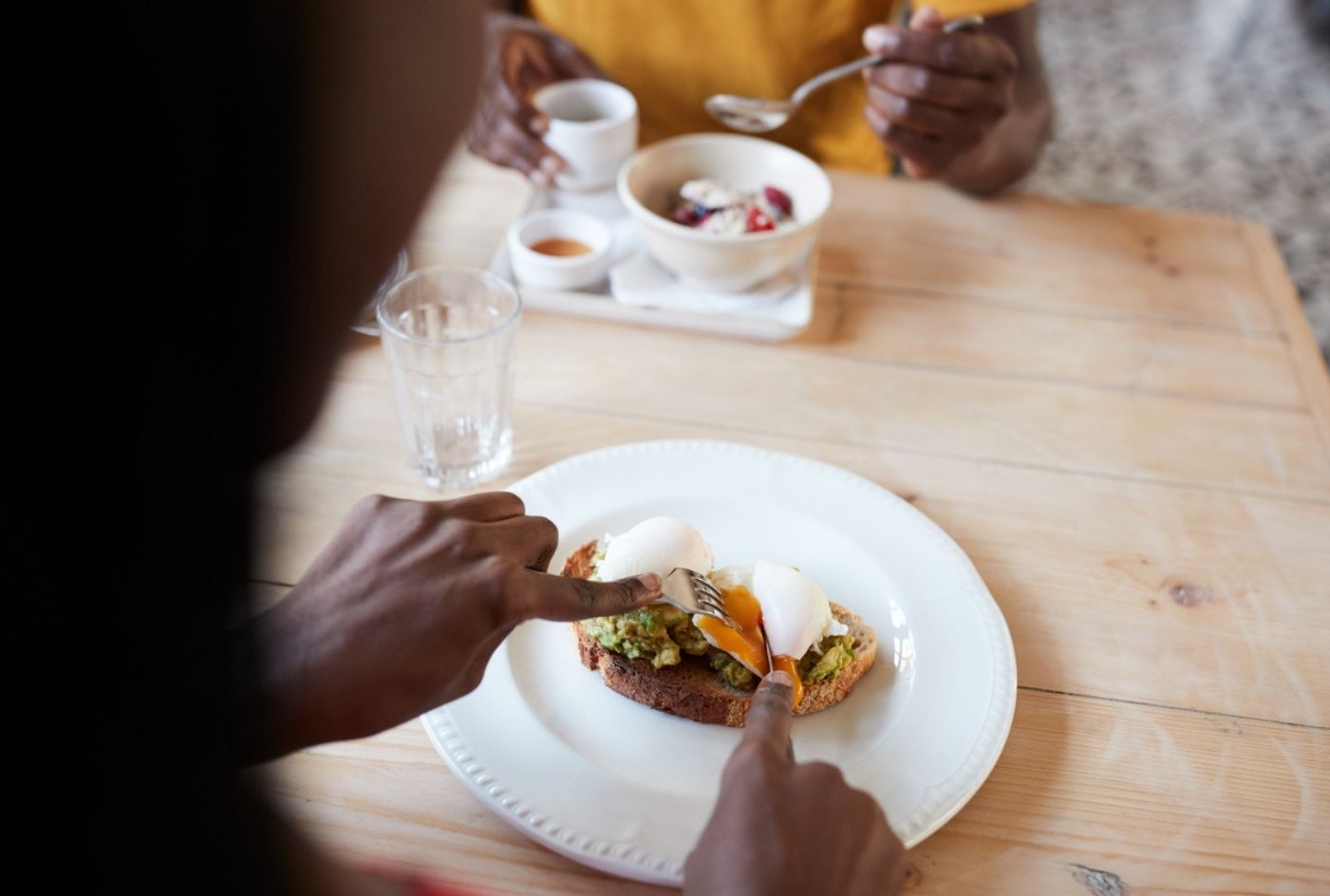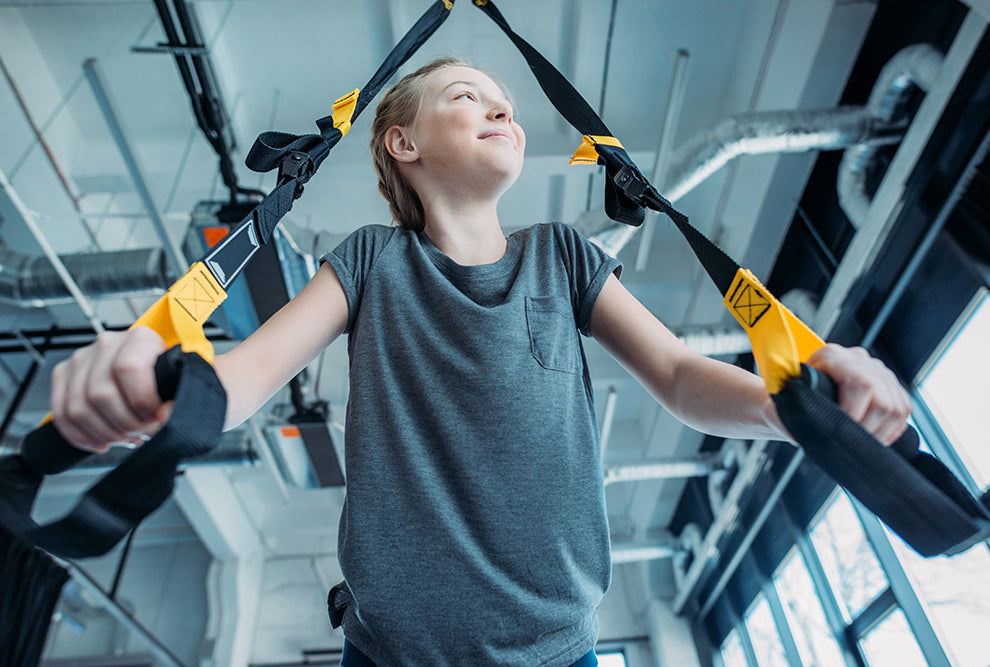
You’ve carefully considered the elements of your child’s home education during this crazy time. You have a home classroom set up and connected to their school, a family reading project, and shiny new arts and crafts supplies. You’ve even enlisted your sister, who was always the better math student, for at-home algebra help.
But don’t neglect gym class at home! The US Department of Agriculture recommends 60 minutes of physical activity a day for children and adolescents. Set aside time to play with younger children or to challenge older ones.
If you need inspiration, try one of these fun ideas for kids’ exercise:
1. Follow Along With Online Gym Class at Home
PE teachers miss gym class too. Many talented individuals are putting up online video content with workouts for kids of all ages and providing lots of ideas for how to teach gym class at home. You can find yoga classes for elementary school kids, strength training for various age groups, and even niche activities such as soccer drills you can do indoors and karate for kids.
Whether your child is learning basic coordination skills, just needs to jump around, or has dreams of winning the NBA Finals, you’re sure to find something online that will provide the necessary guidance to get them started.
2. Take Online Dance Classes
Dance blends athletics with artistic expression, encouraging more than one type of development. Since the pandemic started, dance studios and apps have developed larger libraries of on-demand dance content for all ages and skill levels. YouTube and TikTok also feature plenty of dances to learn, from simple line dances to advanced choreography.
Alternatively, you can check online to see which local studios are live-streaming classes. Talk to other parents and have your kids attend dance class together from your own homes. Ask studios how they run their live classes and opt for a place that uses a platform such as Zoom where you can see other participants. It’s a wonderful and safe way to stay in shape and combat loneliness.
3. Set Goals and Chart Fitness Progress
Give your child opportunities to improve in their homeschool gym class. Set challenging but attainable goals in different fitness areas, shooting for 3-4 goals total. Make sure you cover the following:
- Cardio. For example, run a certain distance on a treadmill, improve your mile time, or bike for a certain amount of time.
- Strength. For instance, hold a plank for as long as you can, do x pushups, do x sit-ups in one minute, or do x pull-ups.
- Flexibility. Example exercises include sit and reach, doing the splits, and bridging.
While improvement in cardio and strength is best measured numerically, flexibility is best charted with daily or weekly progress photos. Whatever the method of measurement, exercise is made more fun when you can see your own improvement and reach your goals. Change up the goals from time to time and be sure to get your child’s input. If they have personal training goals, incorporate them into the regimen. You might also set your own goals and exercise with them, bonding as you work out and struggle together.
4. Make Your Own Game and Then Play It
You can combine craft time with physical activity by making your own fitness equipment.
You might:
- Make a baseball bat out of a 2-liter soda bottle.
- Decorate an empty box and use old laundry scoops to launch bean bags or rolled-up socks into it.
- Cut up old tee-shirts and turn them into a DIY jump rope.
- Play badminton with paper plates and a balloon.
Embrace silliness! Teach your kids that exercise can be fun.
Related Products
5. Get Active With Recess Games
Remember hopscotch? It’s great for improving balance and coordination. Twister is fabulous for flexibility.
You can also play handball against a garage door or quickly draw a two-square or four-square court.
When the weather turns sour, you can bring the hopscotch inside with some painter’s tape. If you’re feeling adventurous, turn your living room into an obstacle course for your 3-5 year-old. They won’t be able to believe their luck.
6. Roll It Out
They’re stressed. You’re stressed. Why not try some family massage therapy?
Use foam rollers and acupressure balls to relieve sore muscles — whether they’re sore from too many hours spent in front of a computer or from vigorous exercise.
Areas of the body to foam roll:
- Calves and Soleus: Sit upright with your legs extended in front of you. Cross one ankle over the other and place the roller perpendicular underneath the bottom calf. Use your hands to raise your lower body off the ground and put your weight on the foam roller. Roll from the ankle to just below the knee. To massage your soleus, move the foam lower down the leg, rolling from your lower calf across the back of your ankle.
- Quadriceps: Lie face down on the floor with the roller perpendicular beneath your quads. Roll from just below your hip to just above your knee. You can roll both legs together or one at a time.
- IT-band: Lie on your side with the foam roller perpendicular beneath your hip. Cross your upper leg over your lower one, placing the foot of the upper leg flat on the floor. Using your forearm for support, roll from the hip to just above the knee.
- Abductor: Face down, bend one knee and open slightly to the side. Roll through the hip and into the quad.
Areas of the body to work with an acupressure ball:
- Piriformis: Sit and place the ball under your glute to one side. Raise the opposite foot and rest it perpendicular above your knee. Using your hands to balance, roll the ball in small circles.
- Thoracic Spine: Lie down and place the ball to one side of your spine. With your feet flat on the floor and your knees bent, roll around your shoulder and mid-back.
- Pectorals: Use your hand to apply pressure, rolling the ball around the tender areas of your chest.
Self-massage can help kids recover more quickly, maintain healthy soft tissue, and increase their range of motion.
Remember, You’re Not in This Alone
Trade fun ideas for kids’ exercise with your friends and neighbors. If your children are old enough, ask for their input. What would they most like to get out of an at-home gym class? Also be sure to check in with the LiveFit blog for more home fitness solutions.
Looking for more ways to improve your fitness routine? Talk with experts at G&G Fitness Equipment today for more inspiration.
For more tips, we recommend these articles: From Fad to Fact: HIIT Training Just Plain Works, Cheap Ways to Workout at Home, Get Fit in the Gym, Lose Weight in the Kitchen.
Have questions? Ask them in the comments below!
Looking for a way to ease those sore muscles?
We recommend the VYPER 2.0 Vibration Roller. This incredible tool allows you to warm up, activate and recover faster and more effectively than any other roller. Used daily by the world’s best athletes.
If you’re ready to take the next steps in your fitness journey, contact the experts at G&G Fitness Equipment today, use the chat feature on the bottom right of this window to connect live with a G&G expert, or stop into a G&G Fitness Equipment showroom and let us show you why we are the best specialty fitness equipment retailer in the northeast.






